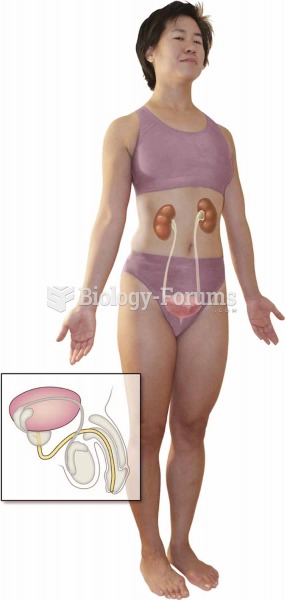|
|
|
When blood is deoxygenated and flowing back to the heart through the veins, it is dark reddish-blue in color. Blood in the arteries that is oxygenated and flowing out to the body is bright red. Whereas arterial blood comes out in spurts, venous blood flows.
Oxytocin is recommended only for pregnancies that have a medical reason for inducing labor (such as eclampsia) and is not recommended for elective procedures or for making the birthing process more convenient.
Hyperthyroidism leads to an increased rate of metabolism and affects about 1% of women but only 0.1% of men. For most people, this increased metabolic rate causes the thyroid gland to become enlarged (known as a goiter).
No drugs are available to relieve parathyroid disease. Parathyroid disease is caused by a parathyroid tumor, and it needs to be removed by surgery.
The Babylonians wrote numbers in a system that used 60 as the base value rather than the number 10. They did not have a symbol for "zero."
 Cystostomy. An artificial opening is made through the urinary bladder wall during this procedure. As
Cystostomy. An artificial opening is made through the urinary bladder wall during this procedure. As
 In The Gross Clinic (1875), by Thomas Eakins, Professor Samuel Gross’s team of surgeons cuts through
In The Gross Clinic (1875), by Thomas Eakins, Professor Samuel Gross’s team of surgeons cuts through





